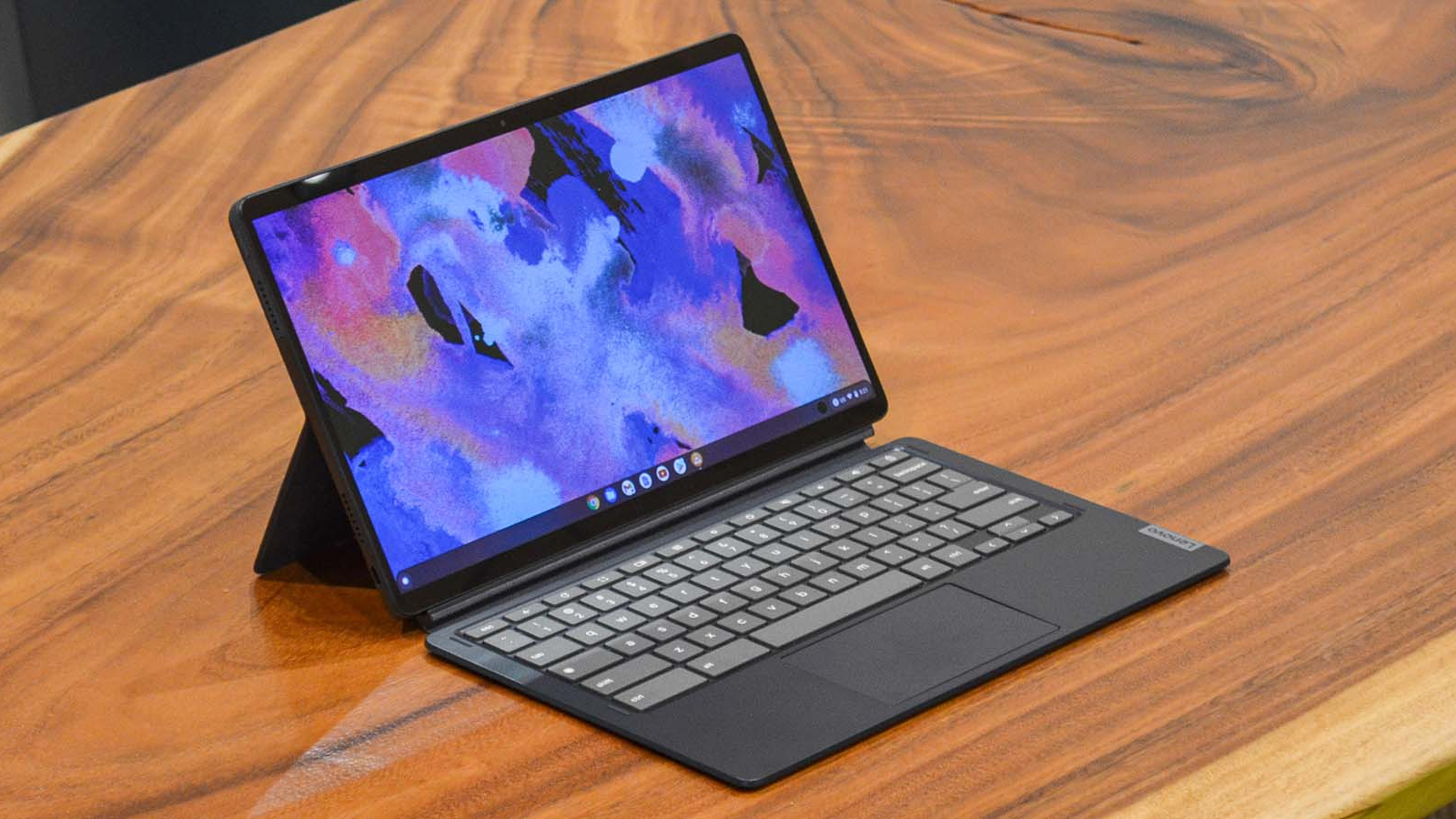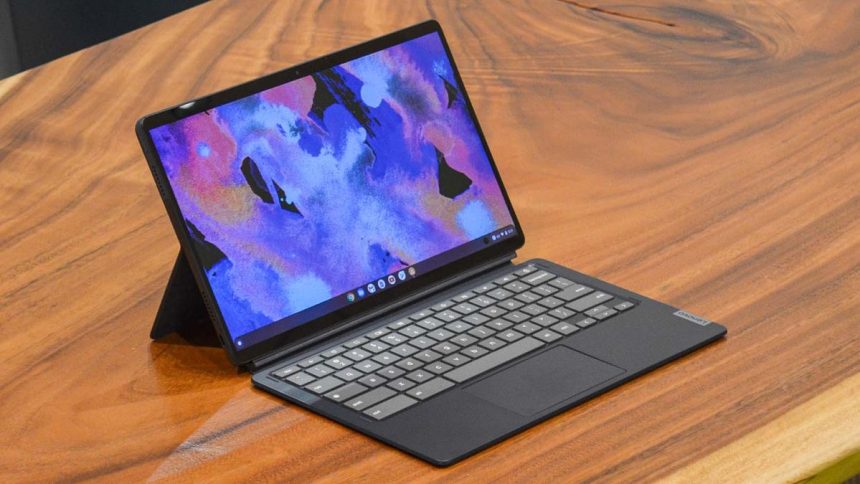
Lenovo is developing a pair of new Chromebook tablets powered by artificial intelligence, which are currently referred to by the internal code name Ciri. This information has been unveiled by Chrome Unboxed, following monitoring of these devices within public repositories—specifically cros.tech and Chromium Dash that retrieve data from Google’s servers. An official announcement is anticipated in the near future.
The upcoming model is expected to be called the Lenovo Chromebook Duet, aiming to succeed the IdeaPad Duet 5 Chromebook. Similar to its predecessor, this device will feature an 11-inch detachable display that can easily disconnect from its keyboard.
Revolutionary Performance
This innovative tablet will be driven by the latest MediaTek Kompanio 838 SoC (system on a chip), identified as MT8188G in Chromium Dash nomenclature. This chipset stands out due to its ARM-based architecture that incorporates a dedicated AI processor known as the NPU 650. With neural processing units (NPUs) integrated, overall hardware functionality experiences significant enhancement.
Enhanced User Experience with AI
As reported by Chrome Unboxed, this chipset promises optimized multimedia experiences and “smarter interactive applications.” MediaTek emphasizes notable performance characteristics including dual support for up to two simultaneous 4K video displays and advanced imaging capabilities for showcasing vivid colors onscreen. Furthermore, the Kompanio 838 enables prolonged battery performance for laptops utilizing it.
The second model mentioned pertains specifically to educational institutions and remains largely undisclosed aside from acknowledging its development. It’s expected that while sharing similar specifications with its sibling tablet, this EDU variant could be engineered for enhanced durability against impacts.
Specifications Considerations
Despite Lenovo’s promising intention for their next Chromebook offering, there are some concerns highlighted regarding its specifications. According to another report on Chrome Unboxed, this device will not fall under the Chromebook Plus category.
This line typically boasts elevated performance metrics compared to standard Chromebooks; however, it’s essential not to discount Lenovo’s forthcoming machine entirely—as it may rival or even surpass typical Chromebook Plus devices due particularly to its advanced MediaTek chipset integration. Still, being outside of this series means users might miss out on unique features exclusive only available within that platform such as Magic Editor or Generative Backgrounds along with Adobe Photoshop support.
At present moment though we cannot ascertain these specifications definitively since development remains ongoing; changes may still occur before any launch date arrives.
p>For updates on outstanding Chromebooks in recent months check TechRadar’s selections for top-rated models slated for release throughout 2024!






